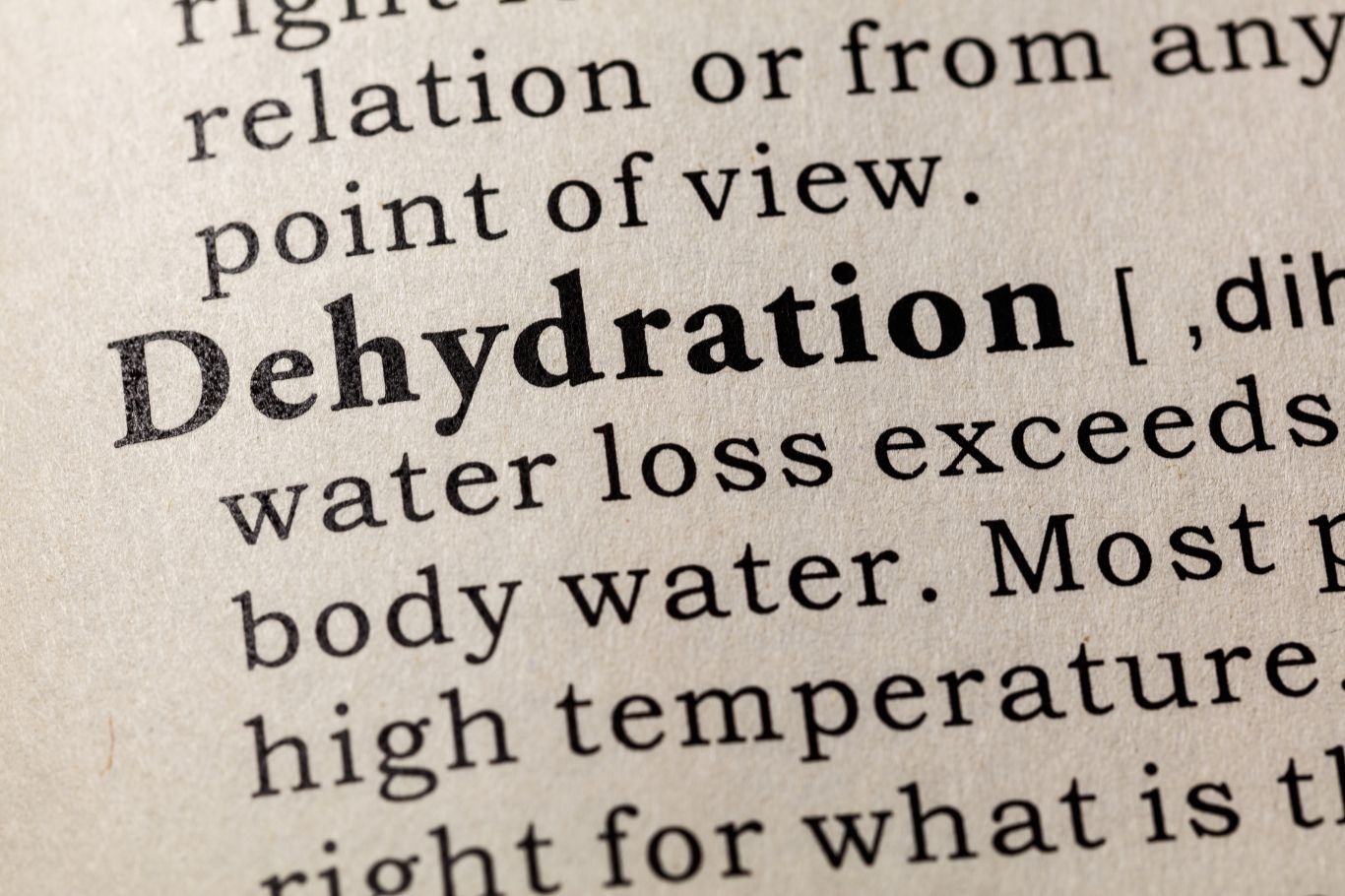What To Know About Dehydration
March 22 2024


Your body continuously expends water through processes like sweat and urine. When this fluid isn't sufficiently replenished, dehydration can occur. This condition can affect anyone but is particularly prevalent among athletes, individuals with labor-intensive jobs, the elderly, and people suffering from chronic illnesses.
Dehydration happens when the amount of water exiting the body is greater than what's being consumed. Frequent contributors to this imbalance include:
- Intense perspiration
- Frequent vomiting
- Ongoing Diarrhea
The Mayo Clinic suggests that women should aim to consume at least 92 fluid ounces (about 11.5 cups) and men approximately 124 fluid ounces (roughly 15.5 cups) of water per day. For those who lead an active lifestyle, engage in sports, or are exposed to high temperatures, it's advisable to increase water intake to prevent dehydration. Loss of excessive water can impair the normal functioning of the body's organs, cells, and tissues, potentially leading to serious health issues. Immediate action is required to manage dehydration; if left unchecked, it could escalate to shock. Dehydration ranges from mild to severe. While mild dehydration can often be managed at home with increased fluid intake, severe cases require professional medical treatment in a hospital or urgent care facility.
Dehydration Risk Factors
Not only those athletes basking in the sun are susceptible to dehydration. Interestingly, even bodybuilders and swimmers can frequently experience this condition. Contrary to what one might think, sweating can occur even while in water, with swimmers often losing significant amounts of sweat during their activity.
Certain groups are more prone to dehydration, such as:
- Outdoor workers who face intense heat regularly, including professions like welding, landscaping, construction, and mechanics
- Elderly individuals
- Those living with chronic illnesses
- Athletes, particularly those who run, cycle, or play soccer
- Babies and young children
- Individuals living at high elevations
How Does Dehydration Develop?
Dehydration arises when the body's water loss exceeds water intake. This can occur through several mechanisms:
Sweating
Your body uses sweating as a cooling system, where sweat glands produce moisture to release body heat through evaporation. As sweat evaporates off your skin, it removes heat, cooling you down. Sweat not only cools the body but also moisturizes the skin and helps manage the body's electrolyte levels. However, too much sweating, particularly during intense exercise or in hot climates, can lead to a significant loss of water and salt, potentially resulting in dehydration. The medical term for excessive sweating is hyperhidrosis.
Illness
Certain illnesses can lead to rapid water loss, primarily through vomiting or diarrhea. These symptoms force water and vital electrolytes out of the body, disrupting the balance necessary for muscle function, blood chemistry, and overall organ operations. Losing too many electrolytes can lead to critical health issues, potentially as severe as stroke or coma.
Fever
A fever can accelerate fluid loss as the body tries to cool down by increasing sweat production. The higher the fever, the greater the sweating, and if fluids are not replenished adequately, dehydration may ensue.
Urination
The body naturally eliminates waste through urination. Some health conditions can lead to chemical imbalances that increase urine output. Without sufficient fluid intake to compensate for this increased urination, dehydration can occur.
What Are The Signs Of Dehydration?
Dehydration manifests through a spectrum of symptoms that escalate from mild to severe as the condition worsens. Noticeable signs can emerge even before dehydration becomes full-blown.
For mild to moderate dehydration, one may experience:
- A sensation of weariness or lethargy
- A parched sensation in the mouth
- An increase in thirst
- Reduced frequency of urination
- Diminished production of tears
- Skin that feels dry to the touch
- Difficulty with bowel movements, often resulting in constipation
- Feelings of dizziness or vertigo
- A sense of being lightheaded
- Occurrence of headaches
As dehydration intensifies to a severe level, symptoms can include:
- An overwhelming sense of thirst
- An inability to sweat
- Blood pressure that falls below the normal range
- A heart rate that is unusually fast
- Breathing that becomes rapid and shallow
- Eyes that appear deeply sunken
- Skin that loses its elasticity and appears shriveled
- Urine that is noticeably darker in color
Severe dehydration is a critical condition that requires urgent medical attention. If you or someone else exhibits any of these severe symptoms, it is crucial to seek immediate medical care.
How Is Dehydration Diagnosed
To determine whether an individual is dehydrated, a healthcare provider will initially review the person's reported symptoms to differentiate dehydration from other possible health issues. The medical history provided by the patient is crucial in this initial assessment. The healthcare provider will then measure vital signs such as heart rate and blood pressure; low blood pressure coupled with a rapid heartbeat may suggest dehydration. Blood tests are often employed to evaluate electrolyte levels, which can reflect the extent of fluid loss. Additionally, these tests can measure creatinine to assess kidney function, which can be affected by dehydration. A urinalysis involves analyzing a urine sample to detect any bacterial presence and assess electrolyte loss. Urine color is another factor considered in conjunction with other symptoms, as dark urine can be a sign of dehydration, although it cannot confirm the condition by itself.
In conclusion, understanding and recognizing the signs of dehydration is critical for maintaining optimal health and preventing the more severe consequences of this condition. At ALIV, we recognize the importance of hydration for overall well-being and offer therapies that not only replenish essential fluids and electrolytes but also promote healthy aging and vitality. Our personalized treatments are designed to support your body's natural balance, ensuring that you stay hydrated and healthy, ready to embrace life's journey with grace and vigor.
References:
- Electrolytes.(2019).
https://my.clevelandclinic.org/health/diagnostics/16954-electrolytes - MayoClinic Staff. (2018). Dehydration.
https://www.mayoclinic.org/diseases-conditions/dehydration/symptoms-causes/syc-20354086 - Mayo Clinic Staff. (2017). Water: How much should you drink every day?
https://www.mayoclinic.org/healthy-lifestyle/nutrition-and-healthy-eating/in-depth/water/art-20044256
